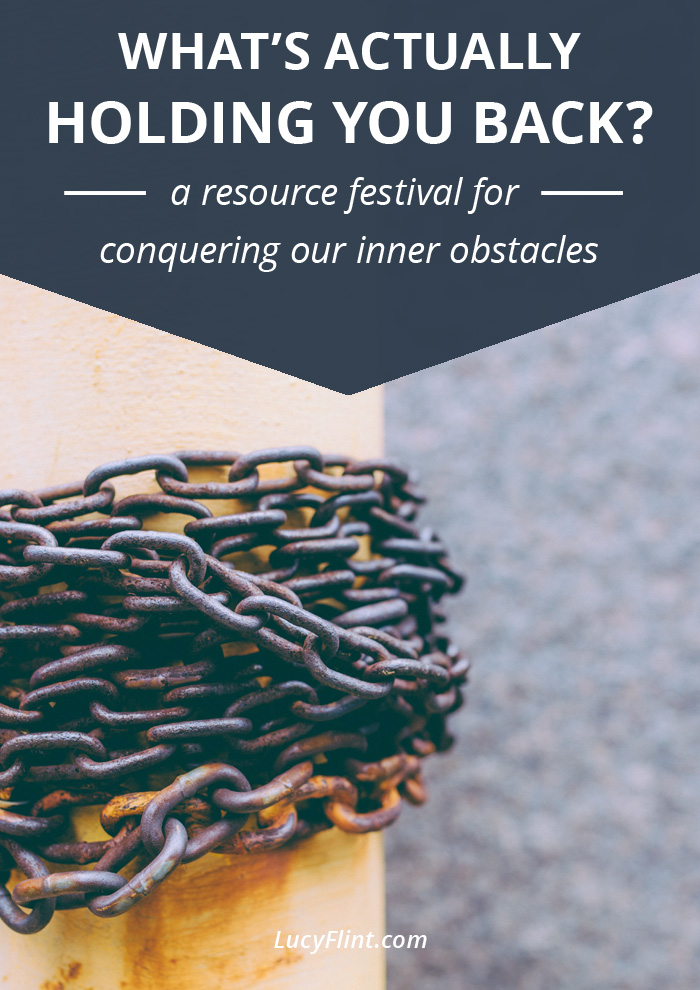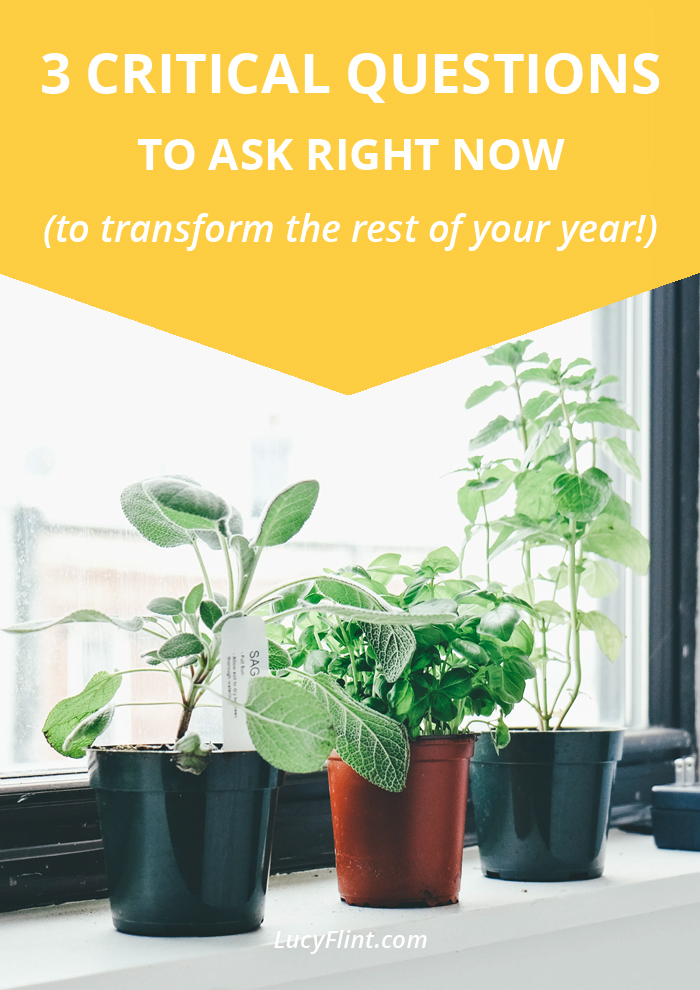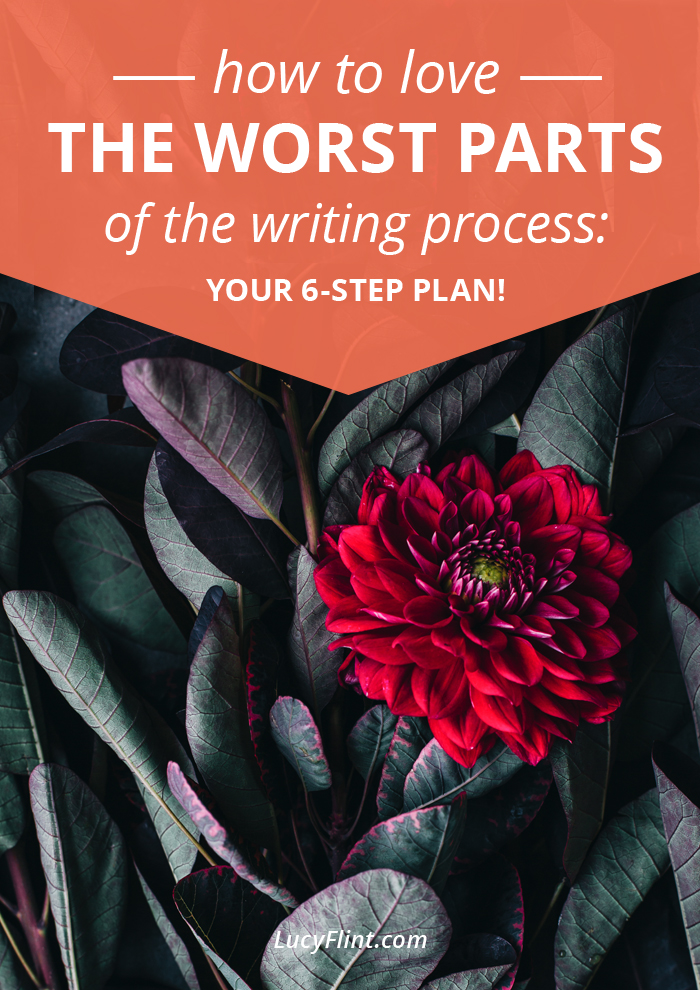The Conversation You Need to Have with 2016 Before You Let It Go
/Sometimes I make my New Year's Resolutions with a sense of revenge. Frustrated at the year I just had, I shake the dust off my feet with a set of goals that will make things right. That will prove something and somehow cancel out whatever was difficult about the year I just had.
The trouble is, while that feels really cathartic and promising, it doesn't really help.
And you know what? I don't want to do that this time around.
I recently came across this beautiful, insightful quote from Zora Neale Hurston:
There are years that ask questions
and years that answer.
When I dove into this year, I was convinced it would finally answer the big question I've been carrying around for over a decade:
When will I publish my first book?
"2016, baby!!" was my hearty reply.
Only it wasn't.
It turned out to be a year of asking new questions—incredibly important ones. Like:
What's at the root of all this perfectionism stuff anyway?
Why do I feel equally terrified of both failing and succeeding?
What kind of an artist and creator and maker do I want to be?
How can I be more healthy, in my head, heart, and creativity?
2016 went every single direction except the one that I had planned. I was reeling through most of it, trying to catch up, catch my breath, catch on to whatever was happening. It felt like one big, slipping-on-a-banana-peel kind of freefall.
It was so not what I expected.
Here, let me put it this way: I'm something of a Doctor Who fan. (In a nutshell, I'm underwhelmed by the monsters and the production value, but I'm heartily in love with the story concepts, dialogue, and relationships. So, yes, I'm hooked, sometimes in spite of myself!)
And in one episode, the TARDIS (their spaceship + time machine, and yes I'd like one for Christmas) says that, while it doesn't always take them where they want to go, it always takes them where they need to go.
And frankly, that's what 2016 was for me.
There was a lot of kicking and screaming. A LOT.
But looking over my shoulder now at all these filled calendar pages, I feel so grateful for all the learning I did. For the amazing resources that came my way (like this one and this one and this one and this one!).
I'm so glad I spent weeks—months!—doing the hard mental and emotional work of excavating old beliefs, old thought patterns, and questioning them. (Like this, and this, and this!)
2016 didn't answer "When am I going to publish the book," but it did do an incredibly good job of asking: "So, what kind of work should I do right now, to clear room for publication, by changing my heart and my mind and the messages I believe?"
It was slow work, and it's certainly not finished, but it's begun, and I'm on better ground because of it.
It's what I needed. It's where I had to go.
And knowing that, deep down, and truly accepting it is what's letting me look at 2017 calmly. I am making my peace with 2016, so that I can plan 2017 boldly—but not angrily, not desperately.
(When am I going to publish my book? 2017, baby!!)
So. How are you doing? What was your 2016 like?
How did your goals and your hopes fare?
What worked out? What blew up?
And—most especially—what interesting paths did you take on the way?
Where did your unexpected learning and new ideas and surprises bring you? Where are you standing, right now?
What were all the resolutions that the year had for you, which you didn't know about? What amazing things did you learn?
Above all, can you accept 2016 for what it was? Maybe even learn from it?
Can you have compassion on yourself, too, for playing the difficult cards you were dealt, as well as you knew how?
And, not to get too weird, but can you thank the year for everything it did—whether you made huge strides (yay!), or whether it felt like a year of spinning your wheels (I'm with you!).
So there it is, my friends. That's what I'm thinking through, in these last few weeks of December:
Let's take everything this year taught us, forgive everything that went awry, and set our faces toward 2017—not in a furystorm of resolution-making, but calmly.
Mmmm!! Exciting!
That's my hope, for you, for me, for all of us lionhearted writers, as we wrap up the year and look to the next.
... It always feels like an adventure to me, flipping that last calendar page, and turning my gaze to the new year, wondering where I'll be at the end of it.
Woo!! December 2017, what do you hold for us?? Where will we be by then?
No idea, but I'm excited to travel toward it with you. :)
Okay, a couple final notes!
First: if you want one of the best-ever New Year's Resolution ideas for your writing life, check out this post: I promise it's a resolution that you'll never regret.
And then, I couldn't let 2016 end without telling you about my most recent favorite discovery!! It's the Life Coach School Podcast, by Brooke Castillo, and OH MY GOSH. I've just started working through them, beginning with the very first episode, and I'm so hooked.
It is an amazing resource for self-management—which is ideal for us writers, because we have to be our own bosses, our own creative directors, and our own coaches, right? And Brooke Castillo's work is INCREDIBLY HELPFUL for handling things like: facing failure, dealing with fear, taking action, and setting goals in a whole new way.
I especially loved this episode for defeating that sneaky and untruthful thought pattern that says everything will be better when: a book is published, or more money is made, or any other goal is reached. Give it a listen!!
Annnnnd this episode is brilliant for fighting off any kind of weird thought/feeling spiral that happens in the midst of a crappy writing week, because I know you've been there and so have I!!
Anyway, check out the podcast soon! I'm pretty sure you will LOVE it.
Okay, my wonderful friends! That's it for me. I hope you have a restful and merry Christmas, and a happy and hopeful New Year's!
And I'll see you in January. :)
















